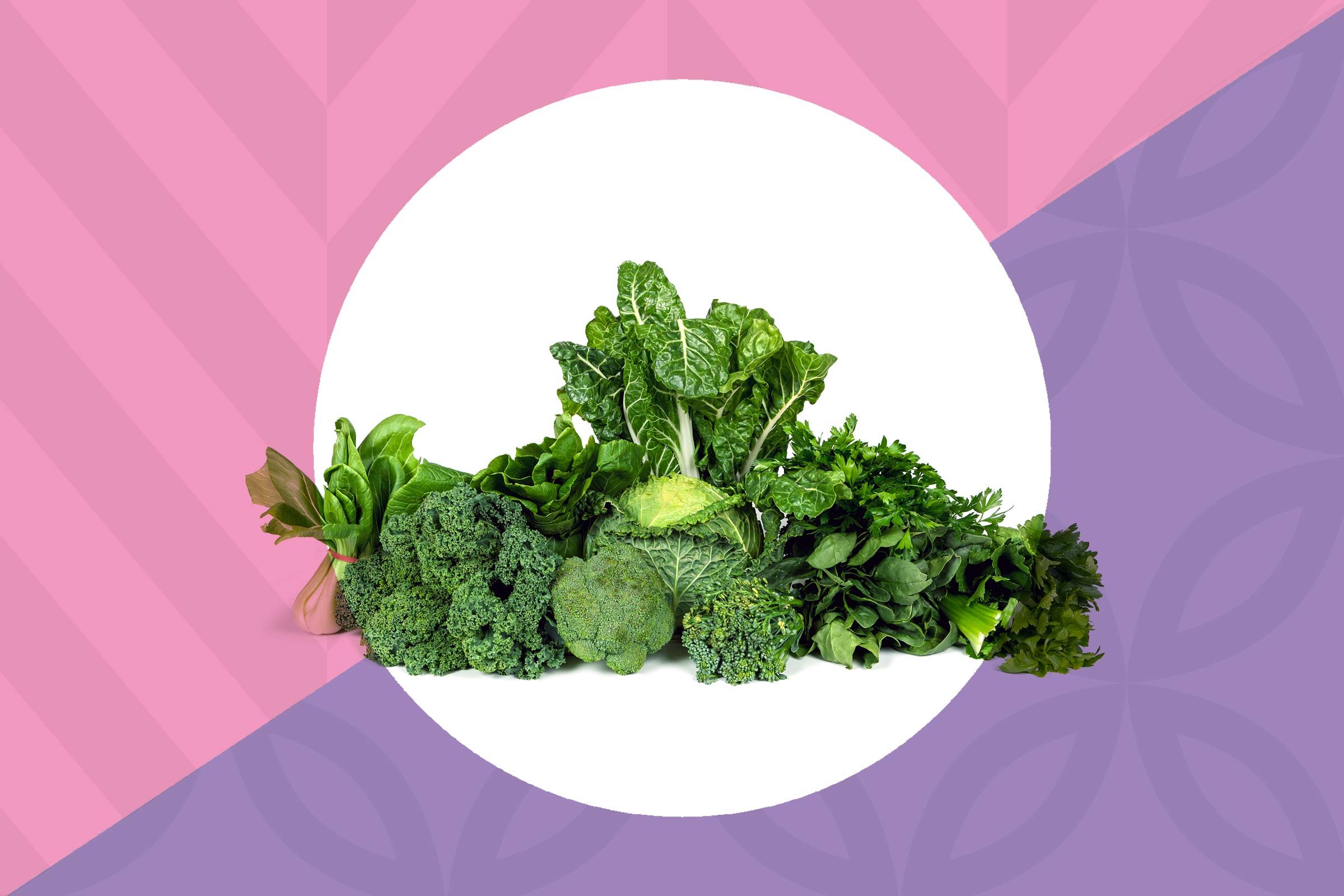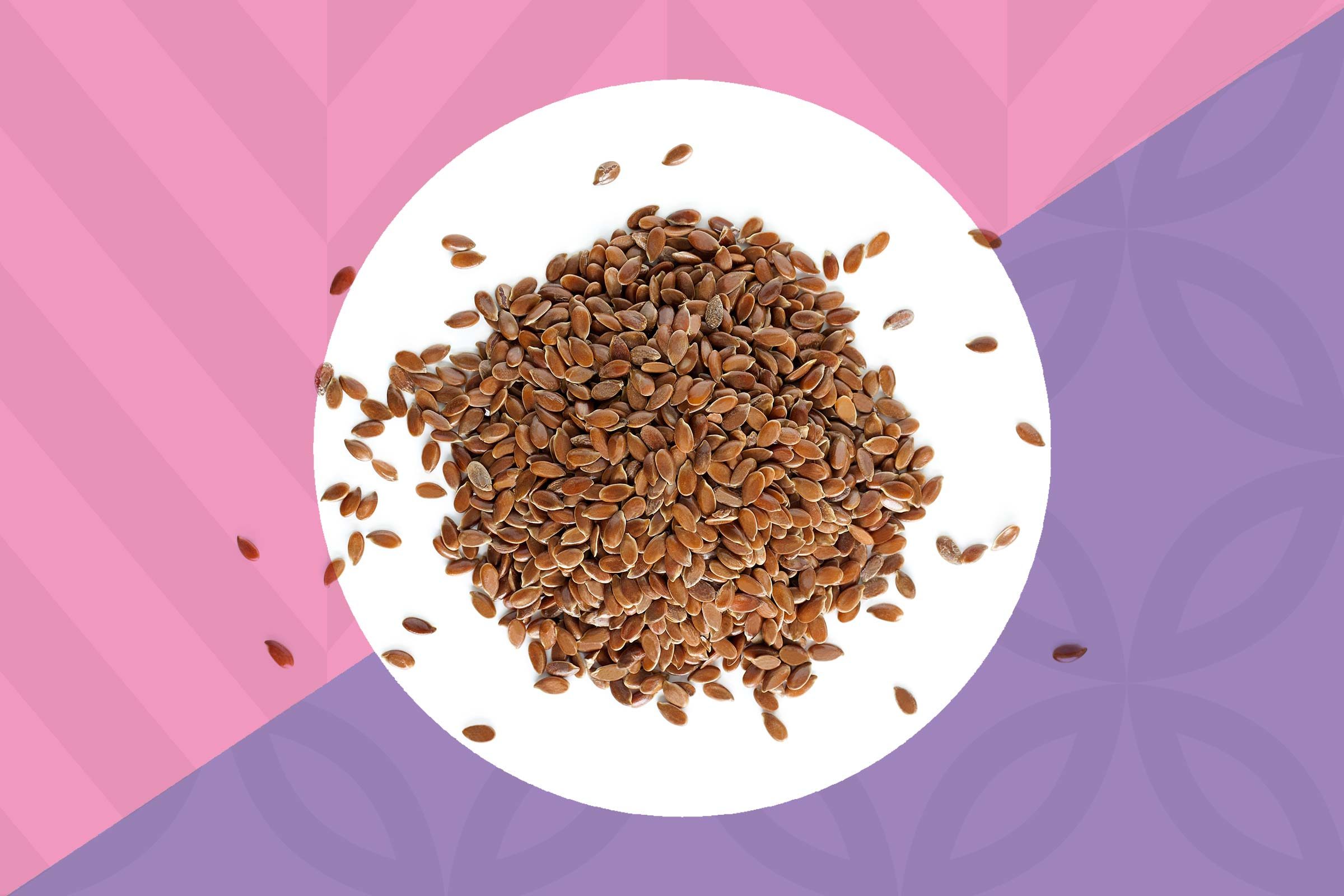
Eat plant-based foods
Foods like fresh vegetables, fruits, and legumes contain phytoesterols, nutrients that help balance your hormones despite waning estrogen levels. Plus, falling estrogen levels can contribute to bone loss and symptoms of osteoporosis. Increasing your intake of leafy greens and vegetables such as kale, spinach, and broccoli are high in naturally occurring calcium, which helps to shore up your body’s calcium reserves and protect your bones. These are signs you could be deficient in calcium.

Consume flaxseeds
Flaxseeds also have an amazing hormone-balancing effect and may reduce many of the symptoms associated with menopause, thanks to compounds called lignans. Recent studies show that the lignans may be a natural remedy for reducing hot flashes, improving bowel function, lowering bad cholesterol, and boosting cognition. Optimize the potency of your flaxseeds by grinding whole seeds yourself (a coffee grinder works well for this) and aim for two tablespoons per day. You can add them to smoothies, yogurt, salads, cereals, etc.

Limit caffeine and alcohol
Both caffeine and alcohol may exacerbate hot flashes and night sweats in women. Therefore, it’s best to dramatically reduce or completely cut out these substances from your diet. These are signs you’re drinking too much caffeine.

Try herbal medicine
There are several herbs, such as black cohosh, vitex, and rehmania, that may help reduce bothersome symptoms of menopause. Since there are so many herbs to choose from, it’s best to work with a healthcare provider who is familiar with natural treatments for perimenopause and menopause for a more individualized approach to your care.

Get moving
Exercise away that menopausal weight gain! To prevent bone loss and shed the extra pounds, you’ll need to incorporate a combination of cardiovascular exercise and weight training into your routine. Walking is a low impact, useful cardio-conditioning workout, while weight training helps you build muscle, rev up your metabolism, and keep you feeling strong. Use these exercise motivation tricks to get started.

Book an acupuncture session
Although it’s not known by what mechanism acupuncture works, research indicates that it does, in fact, help ease menopause symptoms. Women often report a reduction in the frequency and intensity of hot flashes and night sweats. When considering acupuncture, seek out a qualified practitioner. Acupuncture sessions are tailored to each client, so the number of sessions it takes to see results will vary from person to person. Here’s more on how acupuncture heals your body.

Manage stress
As estrogen levels decline, serotonin levels fall too, leaving women more vulnerable to the adverse impact of stress. By incorporating a few stress reduction techniques into your day (like yoga or reading a good book), you’ll reduce stress and lessen the severity of menopausal symptoms such as insomnia and anxiety. These are signs you could be more stressed than you think.

Consider natural progesterone cream
Natural progesterone cream–the prescription a compounding pharmacy formulates for you–may minimize many symptoms of menopause and may appear to increase bone density. Although natural progesterone has a relatively safe track record, work with your healthcare provider to find the best dose for you.

Stop smoking
Smokers tend to reach menopause earlier than the average age of 52. Additionally, Women’s Health Concern—a charity dedicated to providing women with accurate health information—reports smoking worsens hot flashes, raises your risk of developing osteoporosis, and doubles your chances of getting heart disease. On the flip side, when you quit smoking, your menopausal symptoms often diminish considerably. These are other signs you could be headed for early menopause.

Stay hydrated
Sipping on cool, filtered water throughout the day is a great, natural way to keep you hydrated, maintain body temperature and combat fatigue. Dehydration can increase menopausal symptoms, so drinking the recommended eight glasses of water per day can help those symptoms stay in check. These are other sneaky ways you make yourself dehydrated.